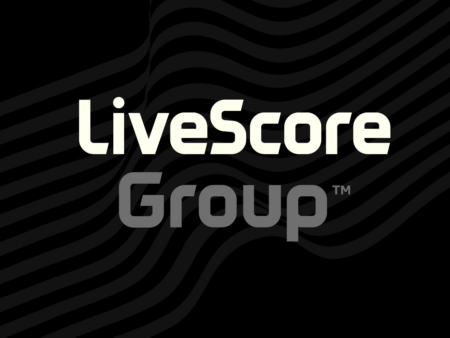October 2024 marked another significant milestone for Michigan’s gaming industry, with the Michigan Gaming Control Board (MGCB) reporting combined sports betting and iGaming revenue of $253.7 million. While this figure represents a 2.8% decline compared to the record-setting $261 million generated in September, it also includes the state’s highest-ever iGaming revenue, highlighting the continued growth and potential of this segment.
iGaming Revenue Hits Record High
iGaming continues to shine in Michigan, with October 2024’s receipts reaching $220.7 million, the highest monthly revenue since the state began regulating online gaming in 2019. This surpasses the previous record of $215.2 million, set in March 2024.
Notably, October’s iGaming revenue showed an 8.5% increase compared to September and a remarkable 37.7% growth year-on-year. Adjusted Gross Receipts (AGR) for iGaming similarly grew by 8.9% month-on-month, reflecting sustained interest and participation among players in the state.
Tax Contributions from iGaming
iGaming operators submitted a total of $41.5 million in taxes and fees to the state in October 2024, further underscoring its importance as a revenue stream for Michigan. This substantial contribution supports state programs and showcases the economic benefits of a well-regulated online gaming market.
Sports Betting Revenue Declines Despite Higher Wagering Handle
Michigan’s sports betting handle for October 2024 reached $560.4 million, an 11.7% increase from the previous month. However, overall sports betting revenue declined sharply, totaling $33 million—a 49.6% drop compared to September.
AGR and Year-on-Year Comparison
Adjusted Gross Receipts for sports betting also fell by 64.3% month-on-month and by 58% compared to October 2023, highlighting the volatility inherent in the sports betting segment. This dip reflects fluctuations in operator margins and payout rates during the month.
Tax Contributions from Sports Betting
Despite the decline in revenue, online sports betting operators submitted $569,374 in taxes and fees to the state, maintaining their role as contributors to Michigan’s tax base.
Detroit’s Casino Contributions
Detroit’s three active casino operators continued to make significant contributions to the state’s gaming revenue. Combined, these casinos reported $10.5 million in wagering taxes and municipal service fees for October 2024.
Breakdown of Revenue
- Sports Betting: Detroit-based casinos contributed $323,517 through sports wagering.
- Online Gaming: The remaining $10.2 million came from iGaming activities, underscoring its dominance in the state’s gaming market.
Tribal Operators and Revenue Contributions
Tribal operators, a vital component of Michigan’s gaming landscape, submitted $5.2 million to the state during October 2024. This demonstrates their ongoing commitment to supporting public programs and fostering growth within Michigan’s regulated gaming environment.
Key Takeaways from October’s Gaming Report
- Record-Setting iGaming Revenue: October 2024 saw Michigan’s highest-ever iGaming revenue at $220.7 million, cementing its role as the state’s most lucrative gaming segment.
- Decline in Sports Betting Revenue: Despite an increased handle, sports betting revenue experienced a sharp decline, showcasing the segment’s inherent volatility.
- Strong Contributions to State Revenue: Both iGaming and sports betting continued to deliver substantial tax contributions, with a combined total of over $42 million for October.
- Detroit’s Resilience: The city’s casino operators contributed significantly to the state’s overall gaming revenue, emphasizing their importance in Michigan’s gaming ecosystem.
The Future of Michigan’s Gaming Market
As Michigan’s gaming industry evolves, the sustained growth of iGaming stands as a beacon of success. With record-breaking revenues and a growing player base, iGaming is likely to remain a critical driver of the state’s overall gaming performance. Meanwhile, efforts to stabilize and optimize sports betting revenue could further enhance the sector’s contributions to Michigan’s economy.
FAQs About Michigan’s October 2024 Gaming Revenue
1. What was the total combined revenue for sports betting and iGaming in Michigan in October 2024?
The Michigan Gaming Control Board reported a combined revenue of $253.7 million for sports betting and iGaming in October 2024.
2. How did October 2024’s revenue compare to September 2024?
October’s revenue fell by 2.8% compared to the $261 million generated in September 2024, primarily due to a decline in sports betting revenue.
3. What was the iGaming revenue in October 2024?
iGaming revenue reached a record high of $220.7 million, surpassing the previous record of $215.2 million set in March 2024.
4. How much did iGaming revenue increase compared to September 2024?
iGaming revenue rose by 8.5% compared to September 2024.
5. How much did iGaming revenue grow year-on-year?
iGaming revenue grew by 37.7% compared to October 2023.
6. What amount in taxes and fees did iGaming operators contribute in October 2024?
iGaming operators contributed $41.5 million in taxes and fees to the state of Michigan during October 2024.
7. How did sports betting revenue perform in October 2024?
Sports betting revenue totaled $33 million, marking a 49.6% decline compared to September 2024.
8. What was the sports betting handle for October 2024?
The total sports betting handle in October 2024 was $560.4 million, an 11.7% increase from the previous month.
9. How much in taxes and fees did online sports betting contribute in October 2024?
Online sports betting operators contributed $569,374 in taxes and fees to the state during October 2024.
10. What revenue did Detroit’s casinos generate in October 2024?
Detroit’s three active casinos reported $10.5 million in wagering taxes and municipal service fees.
11. How was Detroit’s casino revenue divided between sports betting and iGaming?
- Sports Betting: Contributed $323,517.
- iGaming: Contributed $10.2 million.
12. How much did tribal operators contribute to the state’s revenue in October 2024?
Tribal operators submitted a total of $5.2 million to the state during the month.
13. What were the key takeaways from Michigan’s October 2024 gaming report?
- iGaming revenue hit a record high of $220.7 million.
- Sports betting revenue experienced a significant decline despite an increased handle.
- Over $42 million was collected in combined taxes and fees from iGaming and sports betting.
- Detroit’s casinos continued to make substantial contributions to the state’s revenue.
14. What factors contributed to the decline in sports betting revenue?
The decline can be attributed to fluctuations in operator margins and payout rates, which impacted overall revenue.


















